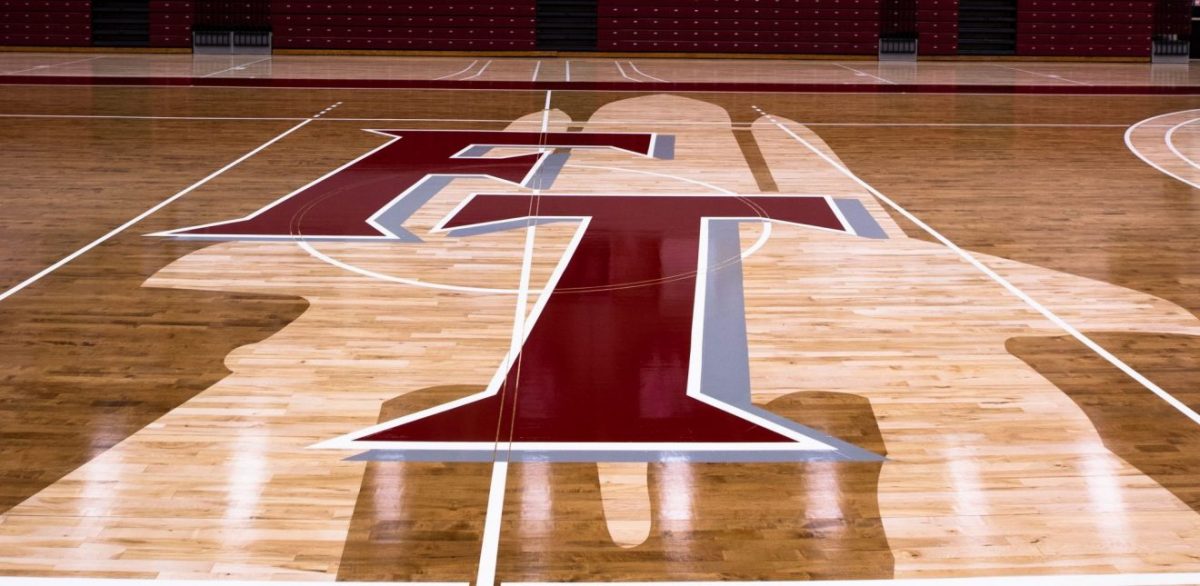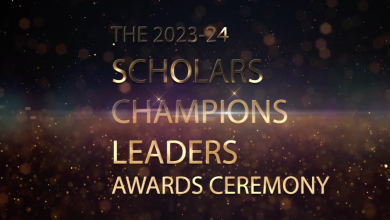College Athletes Study Leads to New Moral Foundation Discovery
The relationship collegiate competitors have between athletic identity and their moral value preferences have shown to differ from previous research, according to a new study involving Florida Tech industrial/organizational psychology professor Gary Burns.
Burns, alongside lead author and University of Cincinnati Ph.D. student Danielle Graham worked on the paper, “Athletic Identity and Moral Development: An Examination of Collegiate Athletes and Their Moral Foundations.”
The findings of the research indicated athletic identity was not significantly correlated with harm/care or fairness/reciprocity as initially hypothesized, but a significant, positive relationship was found between athletic identity and the ingroup/loyalty, authority/respect, and purity/sanctity foundations. The findings indicated that the stronger an individual identified with their athletic role, the greater the value they placed on those three foundations. Additional analyses indicated that gender and years of collegiate sporting experience also moderated some of these relationships.
The positive correlation between athletic identity and purity/sanctity values was a surprising discovery. Although more research is needed, the high scores in this foundation could be a result of participants interpreting ‘purity’ as an indication of high levels of self-restraint or self-discipline associated with their strict regimen of exercise and nutrition, this being something competitive athletes are generally recognized for.
“We found that there were significant correlations with the ingroup, authority and purity/sanctity values, which were the opposite of what we predicted,” Graham said. “But if you step back and think about what an athlete on a team does, they (tend to) have strong team values and high respect for their coaches. So, it made sense, it was just different than what previous literature led us to predict.”
For the project, the athletic identity and moral reasoning of 238 NCAA Division I intercollegiate, club sport and intramural student-athletes were assessed using the Athletic Identity Measurement Scale and the Moral Foundations Questionnaire.
Their goal was to see whether a relationship existed between athletic identity and the moral value preferences of collegiate student-athletes to in turn examine the social impacts collegiate sport participation might have on social development. They applied the five-part Moral Foundations Theory to their research: harm/care (cherishing and protecting others); fairness/reciprocity (rendering justice according to shared rules); ingroup/loyalty (standing with one’s group, family, nation); authority/respect (submitting to tradition and legitimate authority); and purity/sanctity (abhorrence for disgusting things, foods, actions).
The study is a continuation of their previous work on athletic identity when Burns was a professor and Graham a master’s student at Wright State. Burns has led work with GameChange, a program that works with professional athletes transitioning out of their professional sporting careers. Graham worked under Burns on the GameChange initiative and was initially inspired to investigate the moral reasoning preferences of student athletes based on collaborations with Burns, personal experience as a student-athlete herself, and the student development research she was simultaneously examining on stage theories of moral development.
More work is being done to help student-athletes think of different career aspects outside of professional sports. More universities are offering life skills classes where student-athletes are able to gain exposure to various job fields and work on developing professional skills, like building resumes and interviewing for jobs. In 2016, the NCAA began a partnership with the National Association of Academic Advisors for Athletics for daily oversight and operation of programming for student-athletes and life skills professionals at NCAA member institutions.
When asked about how student-athletes could better handle identity issues, Burns noted the importance of exploring career options, whether sports-related or not.
“Don’t think of yourself exclusively as an athlete,” he said. “Maintain those other aspects of identity. Being an athlete can still be the most important part of how you perceive yourself, but make sure that you develop that identity in other areas, as well.”





